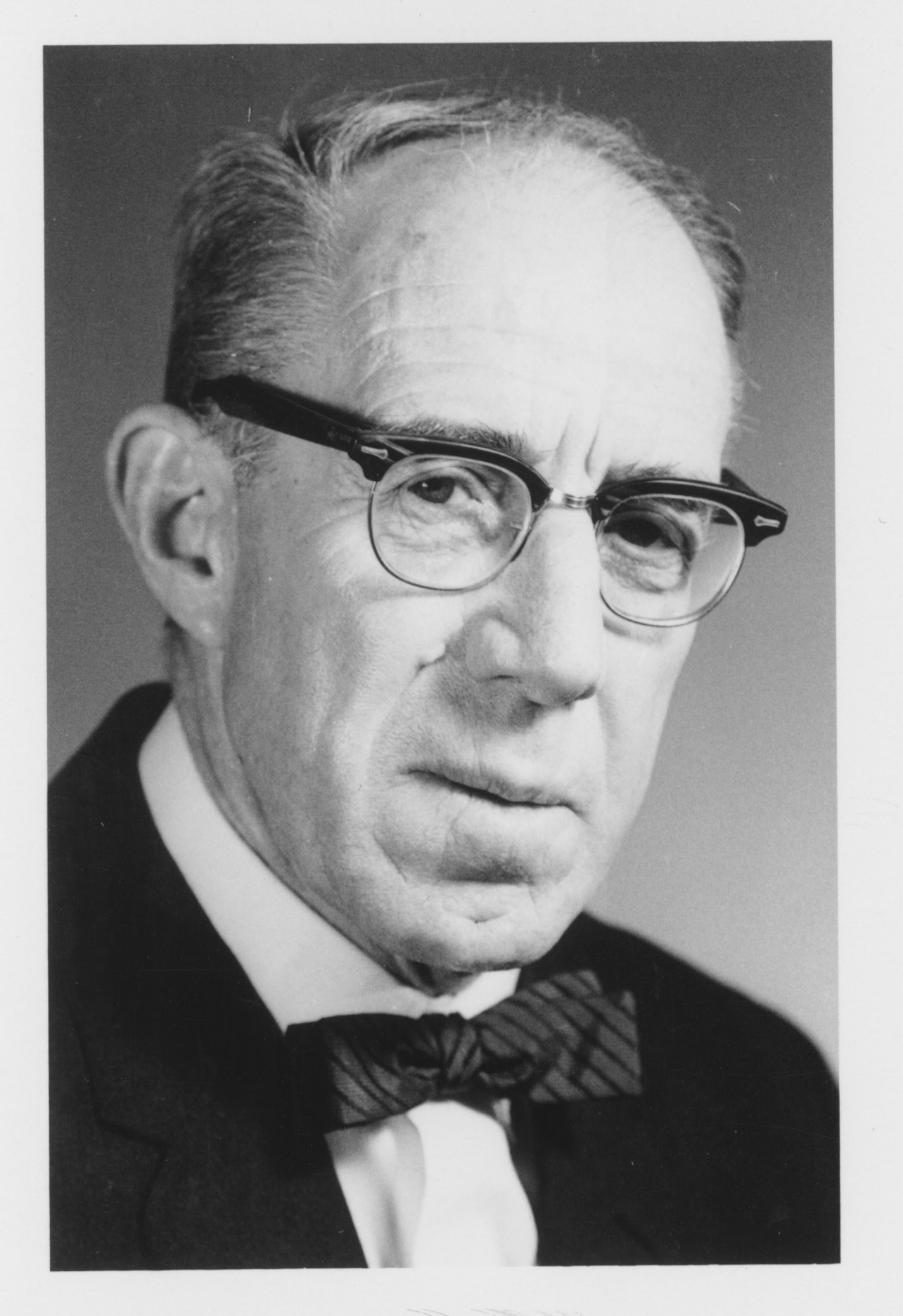Background on Dutchy Barnard

Ellsworth Barnard
Ellsworth 'Dutchy' Barnard was born in Shelburne Falls, Massachusetts, on April 11, 1907 to farmers David and Kate Barnard. After receiving his Bachelor of Science degree from Massachusetts Agricultural College in 1928, he continued on for a Master of Arts (1929) and Doctorate (1935) at the University of Minnesota. He was a lifelong naturalist and birdwatcher.
While still writing his dissertation, Barnard began teaching, first at his alma mater in 1930, now renamed Massachusetts State College, and then at the University of Tampa in 1936, the same year he married Mary Taylor. After publication of his dissertation on the religion of the poet Percy Bysshe Shelley in 1937, he accepted a position at Williams College, however he and colleague, Nathan Comfort Starr were dismissed in 1940 under what was considered scandalous circumstances. Barnard rebounded by accepting a position as head of the English Department at Alfred University, where he worked for nine years beginning in the fall of 1941.
A politically progressive critic of isolationist tendencies in the United States, Barnard had written in support of American entry into the Second World War as early as January 1940, and during his stint at the University of Wisconsin at Madison in the academic year 1940-1941, he spearheaded a faculty petition encouraging immediate aid for Britain and the Allies in Europe. Although rejected for military service when he tried to enlist after the attack on Pearl Harbor, Barnard taught in the Army Specialized Training Program at Alfred, instructing potential officers how to write accurate and readable reports.
The conflict with the administration that Barnard had experienced at Williams was repeated under two different presidents at Alfred, and after Barnard's refusal to swear that he was not a member of the Communist Party, he was forced out of his position in 1950. After a brief appointment teaching a summer session at the University of Rochester that year, he remained unemployed for two years, devoting his time to completing his second book, Edwin Arlington Robinson: A Critical Study, published in 1952.
With the completion of the Robinson book, Barnard secured a position at the University of Chicago, remaining a provocative figure in advocating for civil liberties. In his article "Communism is not the Question" (written in 1953, but published in 1955), he directly criticized the practice of barring communists from academic positions. During his three years at Chicago, he also began to build a home at High Ledges, a plot of land in Shelburne Falls that he had purchased with his wife.
After Chicago, Barnard held a one-year appointment at Bowdoin College, during which he began to explore a new and controversial system for teaching English grammar that focused on actual usage rather than specific rules, and he launched into a biography of Wendell Willkie. Moving on to Northern Michigan University in the fall 1957, he developed a system of student evaluations for professors, and remained long enough to rise up the ranks and become department chair in 1962-1963. He presided over a selection committee which brought the first African-American faculty member to NMU.
In 1961, after taking a leave of absence from Northern Michigan University for the fall of 1960, Barnard completed work on his biography Wendell Willkie: Fighter for Freedom (1966). Like his subject, Barnard remained politically active, leading a faculty and student protest against to the dismissal of Bob McClellan, a history professor who had opposed administrative policies. Although McClellan's dismissal was avoided, Barnard had already tendered his resignation and returned home to Massachusetts to accept a position at the University of Massachusetts Amherst.
The latter years of Barnard's career at UMass were highlighted by continued work on Edwin Arlington Robinson and a series of self-published autobiographical works, as well as publications on teaching grammar. The last two years of his career at the University (1971-1973) were filled in the newly-created office of Ombudsman.
Even in retirement, Barnard continued to write. In 1998, the Massachusetts Audubon society published his book In a Wild Place: A Natural History of High Ledges, and his own Dinosaur Press issued both a collection of his poetry, Verses in a Vanished Mode (2002) and a posthumous collection of essays, Don't Give Up the Fight, Ever. Barnard lived in Amherst and High Ledges until his death on December 29, 2003.

